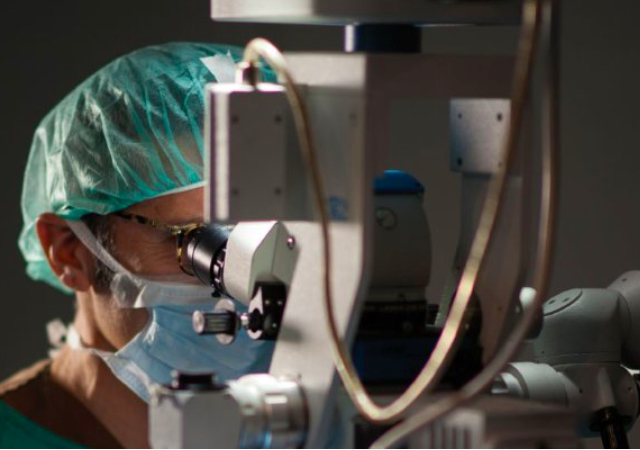Gene therapy, an argument against AMD

Gene therapy is an experimental technique that in the future could enable a condition to be treated through the substitution, inactivation or insertion of a gene into the cells of a patient. The results of the initial clinical trials of gene therapy for Leber congenital amaurosis, together with other results obtained from preclinical studies in animal models, have provided a new proof of principle that suggests that gene therapy works in treating monogenic retinal dystrophies. The framework for testing this advanced therapy on other retinal diseases, such as atrophic AMD, has also been established.
AMD is a complex and multifactorial disease. Although genetic studies have proved quite successful in identifying the genes and processes underlying the risk of developing the pathology, the understanding of the genetic triggers of AMD progression is still insufficient. In addition, a plethora of risk factors have been identified; it seems that age, genetic risk variants and lifestyle-related factors represent primary risk factors.
The B·Debate, Fighting Blindness: Future Challenges and Opportunities for Visual Restoration, will devote a session to genetic and gene therapy. Dr. Caroline Klaver will explain (Exploring the combined role of genetic and non-genetic factors that lead to AMD: a system-level analysis of disease subgroups, risk factors and pathways) the status of EYE-RISK, one of the European projects in which the BMF: Research for Vision participates. This proposal will exploit existing longitudinal cohort studies from the European Eye Epidemiology Consortium (E3) and from clinic-based bio-banks, to validate currently known genetic and non-genetic risk factors for age-related macular degeneration (AMD). It will also investigate their interaction, test and interpret their pathophysiological consequences at the molecular level, and establish individualized risk profiles according to the different subgroups of AMD patients.
In addition to Dr. Klaver, Dr. Baruch Kuppermann (University of California, USA) and Dr. Francisco Javier Díaz Corrales (Andalusian Center for Molecular Biology and Regenerative Medicine, CABIMER), will also participate in the session, which will be moderated by Dr. Eduardo Fernández (Miguel Hernández University).